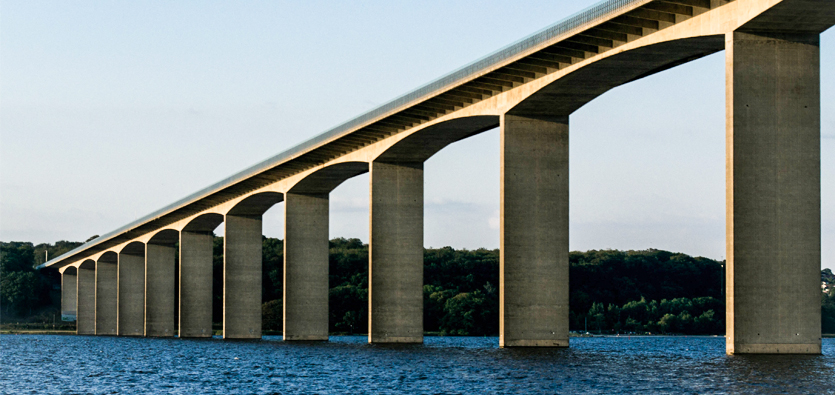
It is essential to carry out accelerated degradation tests on glass fiber reinforced polymer (GFRP) to determine its ability to remain stable under long-term exposure to chemicals, chlorides and other corrosive elements. Researchers have already conducted a number of tests to study the durability of composite materials in harsh environments. The results reveal that GFRP rebar exposed to corrosive elements exhibited negligible reductions in mechanical properties with time. It is because of the promising results that the construction industry is now increasingly using composite materials for new and rehabilitation applications.
Durability testing of GFRP rebar has been conducted by a number of universities and research centers all around the world, covering a range of different environments and evaluation conditions. Testing in-practice construction materials is a complex task that requires advanced tools and skills. It was difficult to study surface degradation through SEM analysis. However, many studies have been performed over the past few years to test GFRP reinforcement in saltwater and acidic environments. Since the durability properties of GFRP bars are not affected by exposure to degradation environments, it is established that GFRP reinforcement is ideal for applications where corrosion is a prime concern.
The tensile strength of the fiberglass rebar exposed to an acidic environment does not decrease as the exposure time increases. Some studies show that the strength decreased was too small to influence its mechanical properties. Fiberglass rebar is applied as a concrete reinforcement mainly when a concern exists regarding the inability of steel and other traditional reinforcement materials to resist corrosion. Properties of being salt-resistance and mechanically superior indicate that GFRP bars should be used as a permanent steel replacement.
Corrosion of internal reinforcing steel is considered as the major factor behind the failure of concrete structures. Reinforcement corrosion leads to cracks in concrete that makes it easy for chlorides to penetrate and reach the steel to begin oxidizing. As a corrosion-free material, fiberglass rebar is a practical and economically viable solution that give structures a long service life. The availability of thorough design guides, specification and qualification procedures, manufacturing techniques, and construction standards make it practical for builders and contractors to safely and commercially implement GFRP rebar in a range of civil applications.
TUF-BAR is one of the world’s leading companies when it comes to manufacturing and selling the highest quality GFRP rebar. You can discuss with us the environments in which you are planning to use fiberglass rebar. We will be happy to assist you on how GFRP fiberglass rebar can be used as concrete reinforcement to fight deterioration and minimize maintenance costs. Visit our site to know more about our GFRP products and their specifications. Feel free to call us if you have any question.
